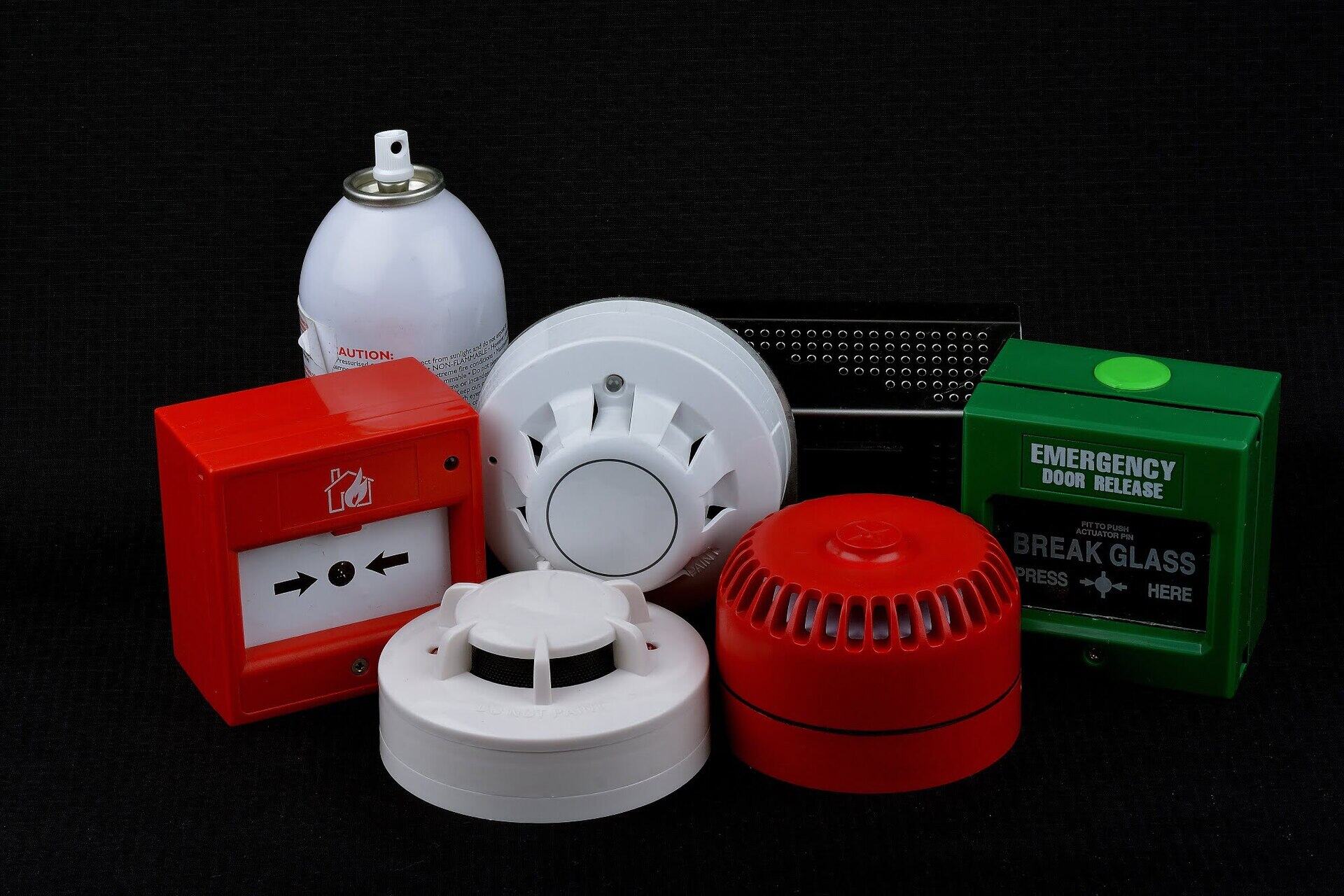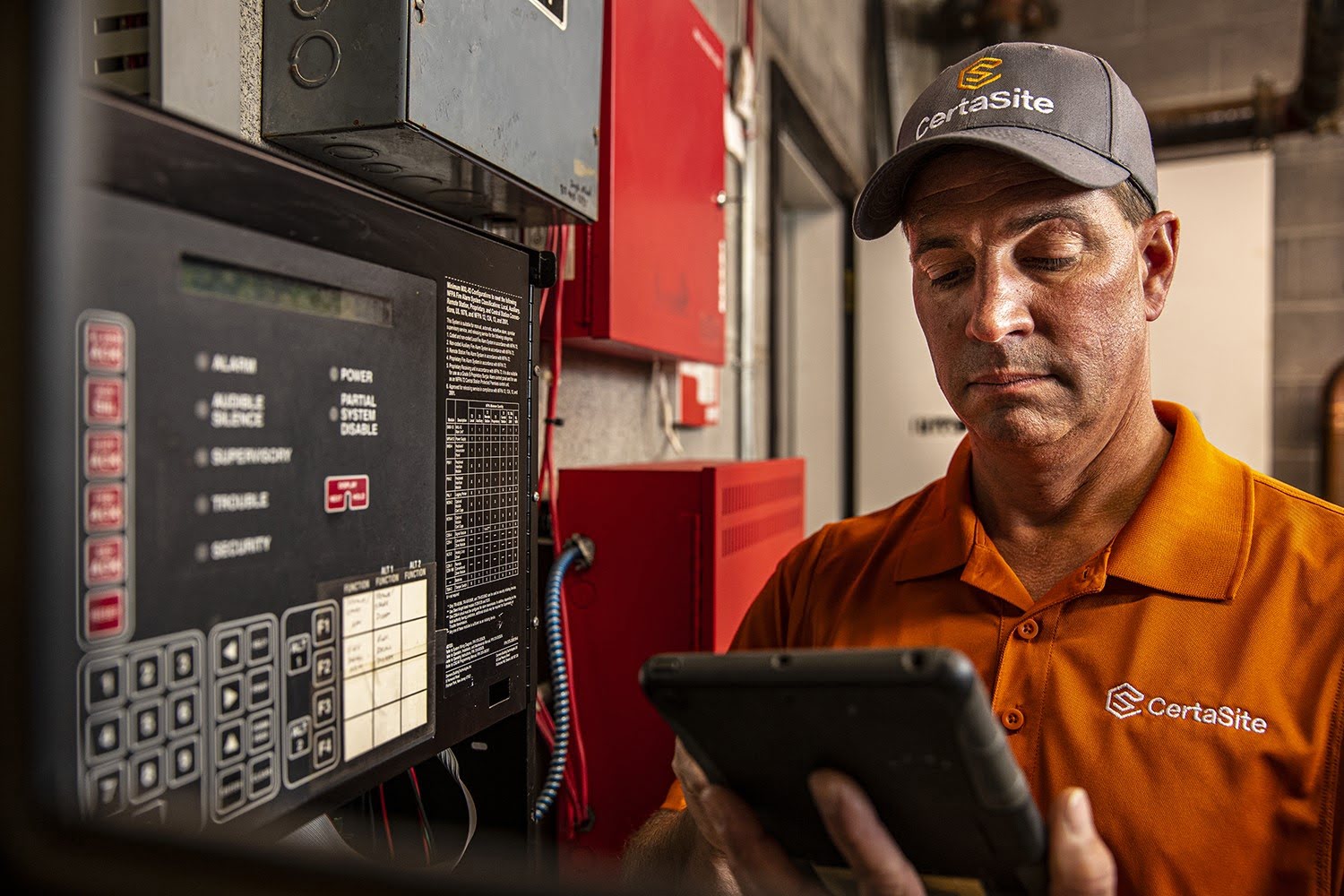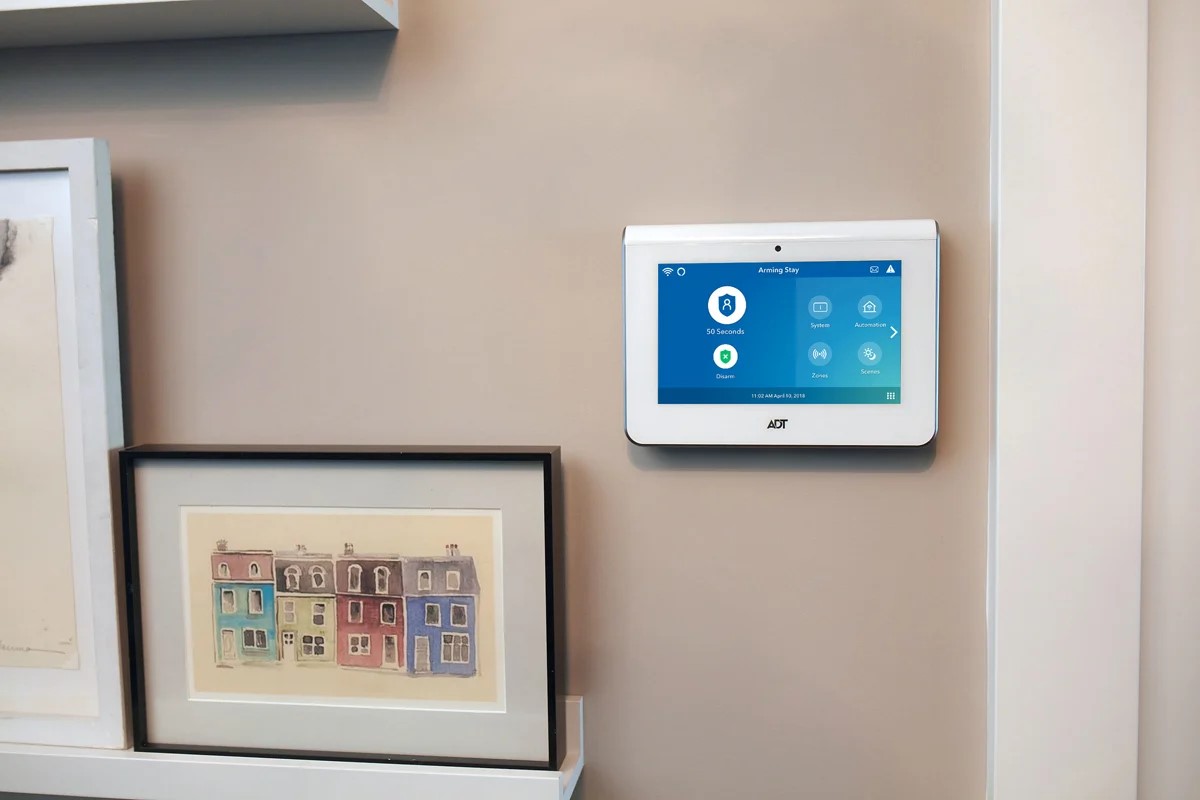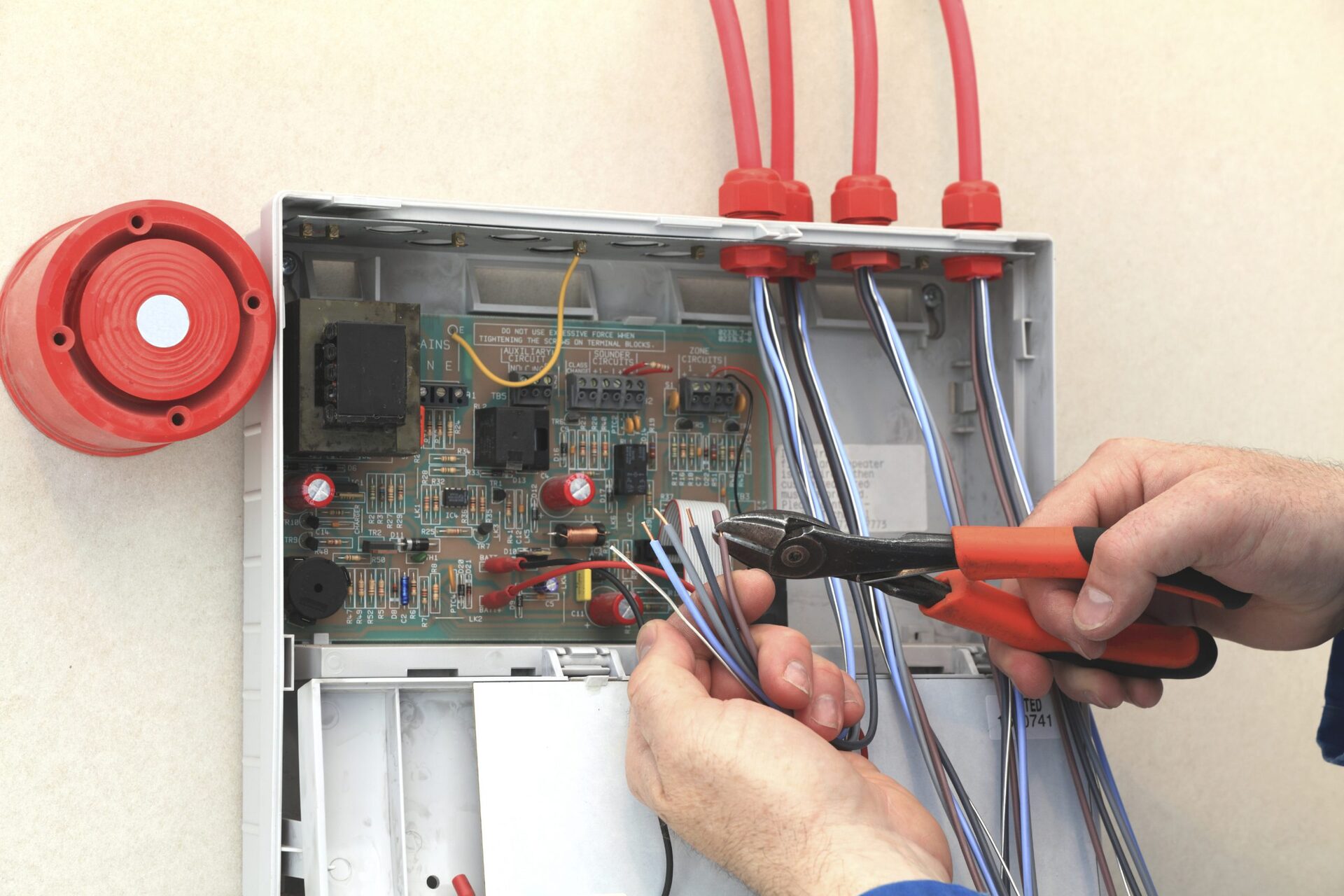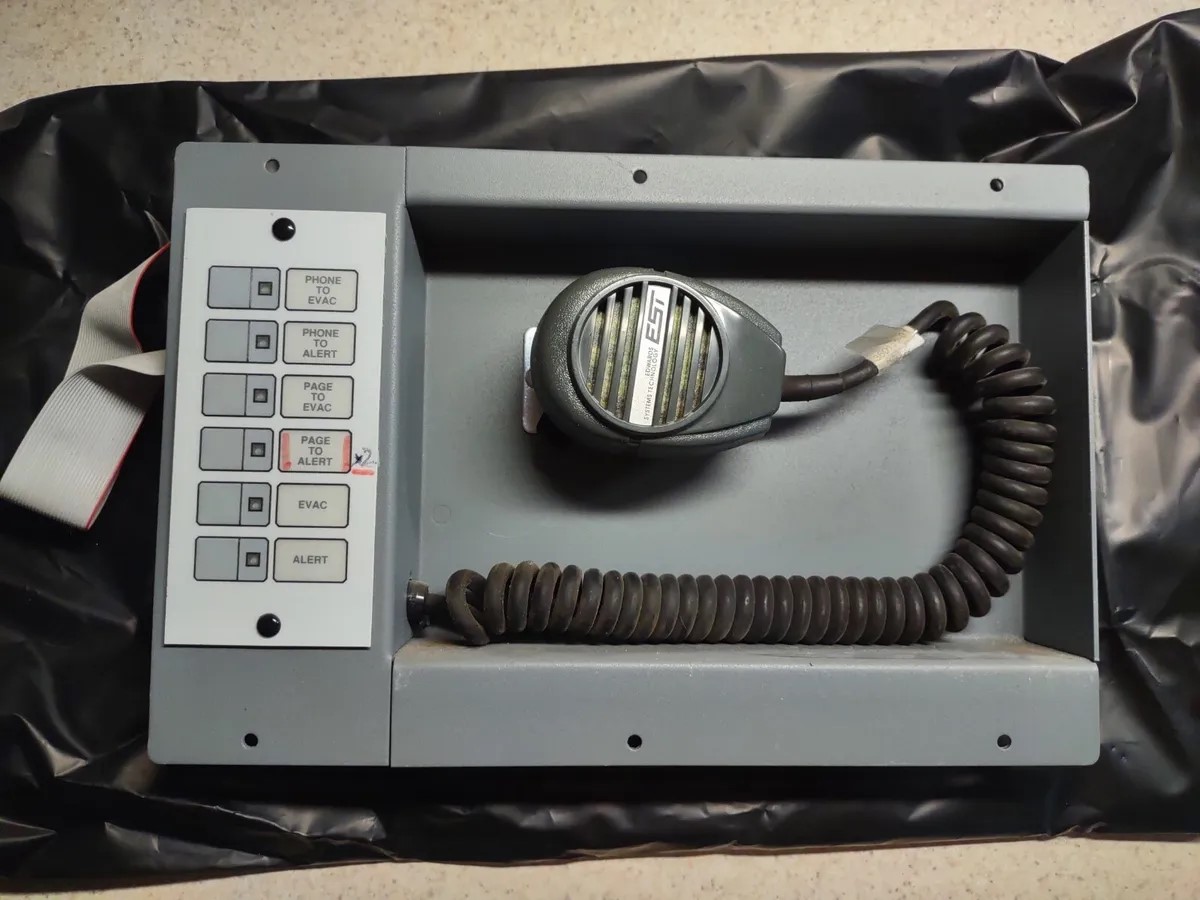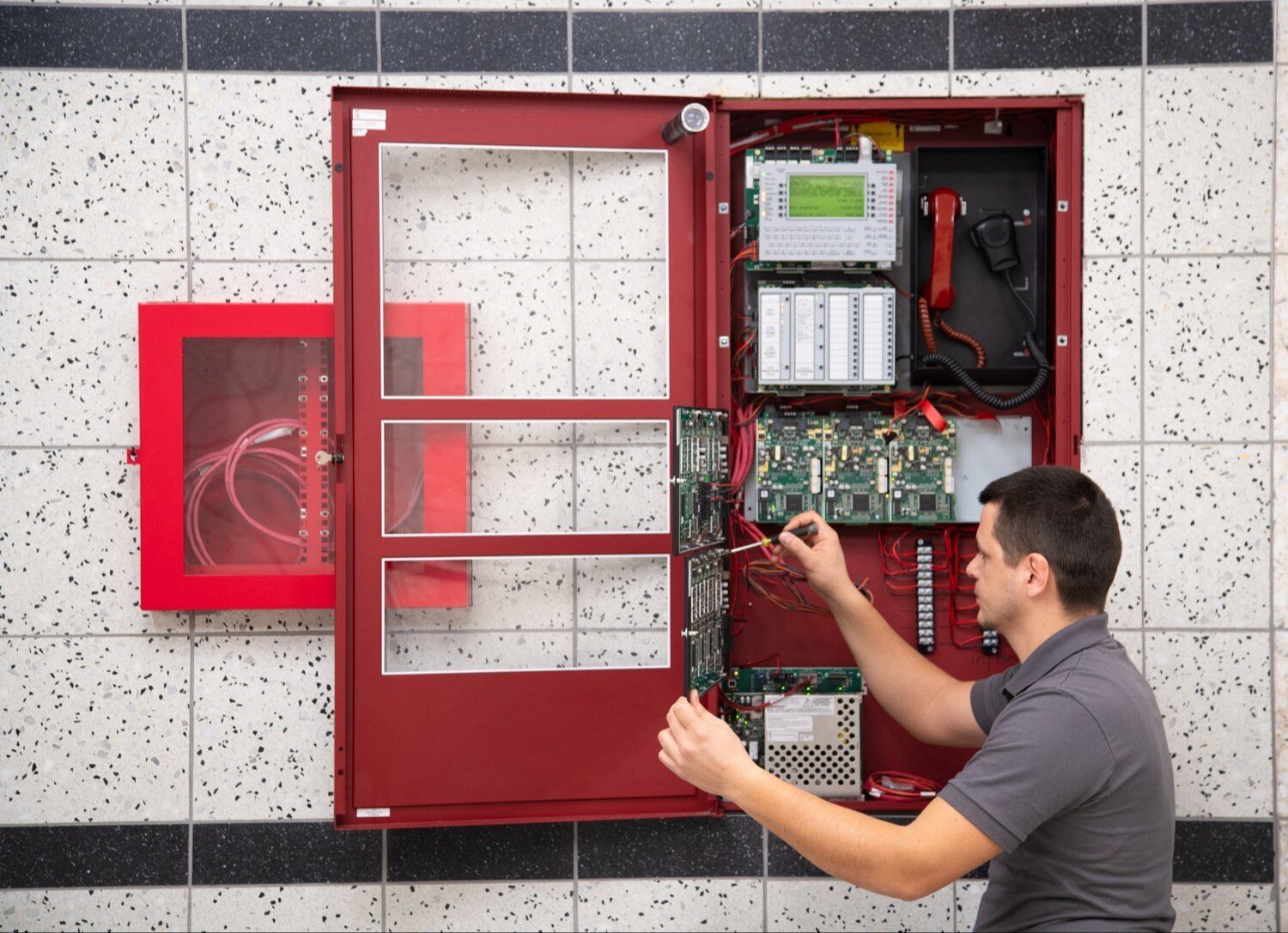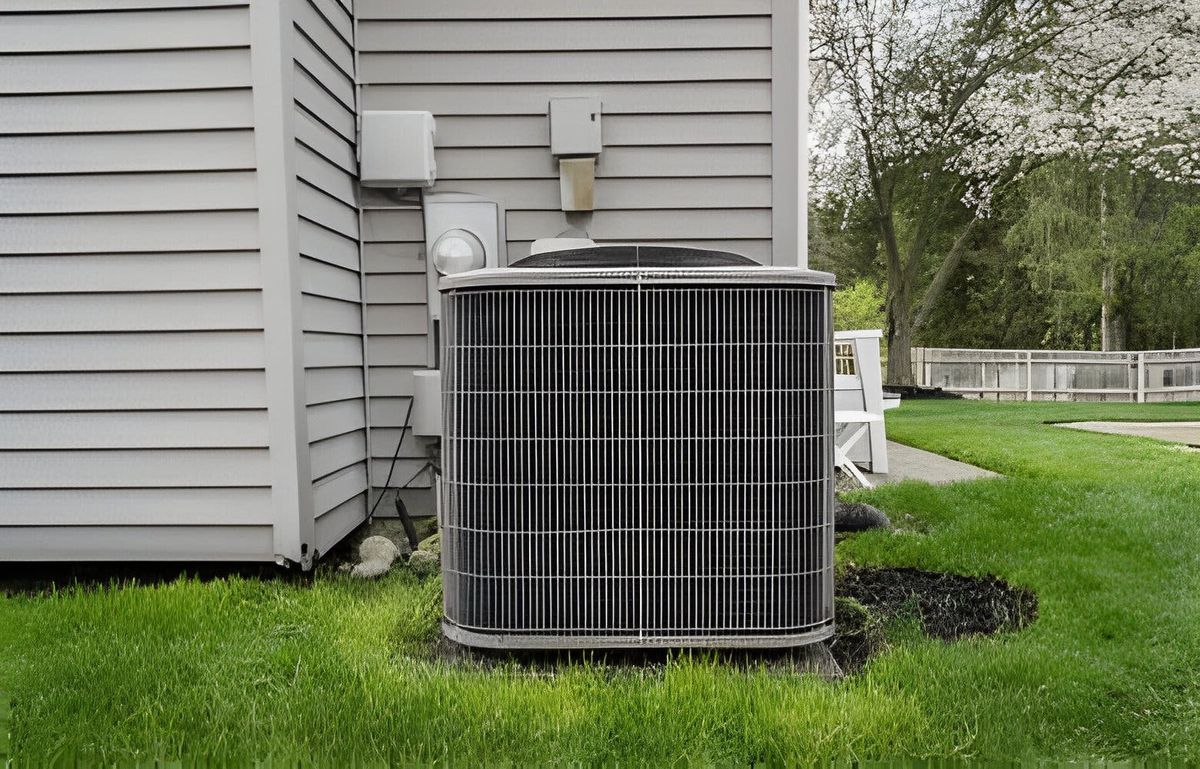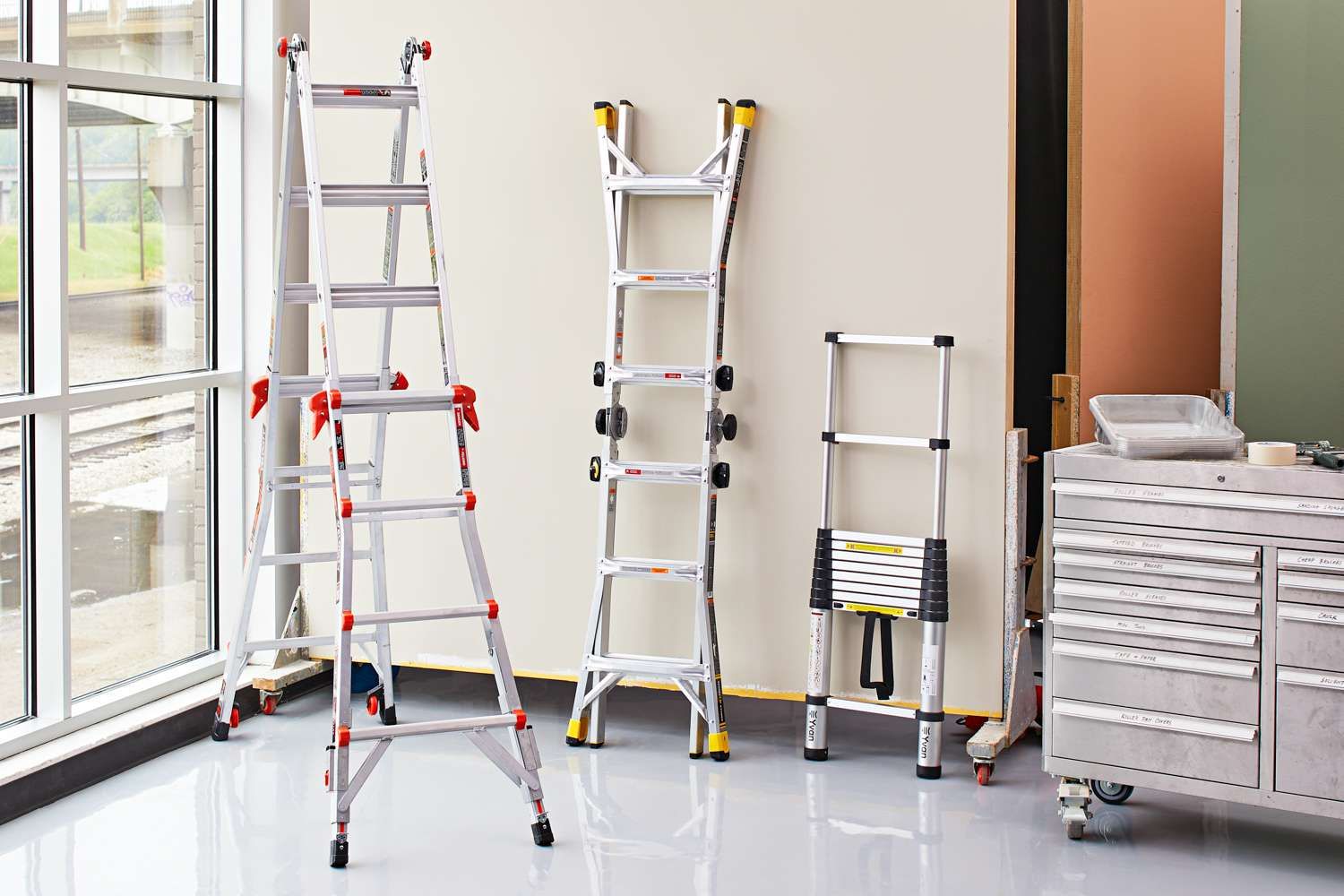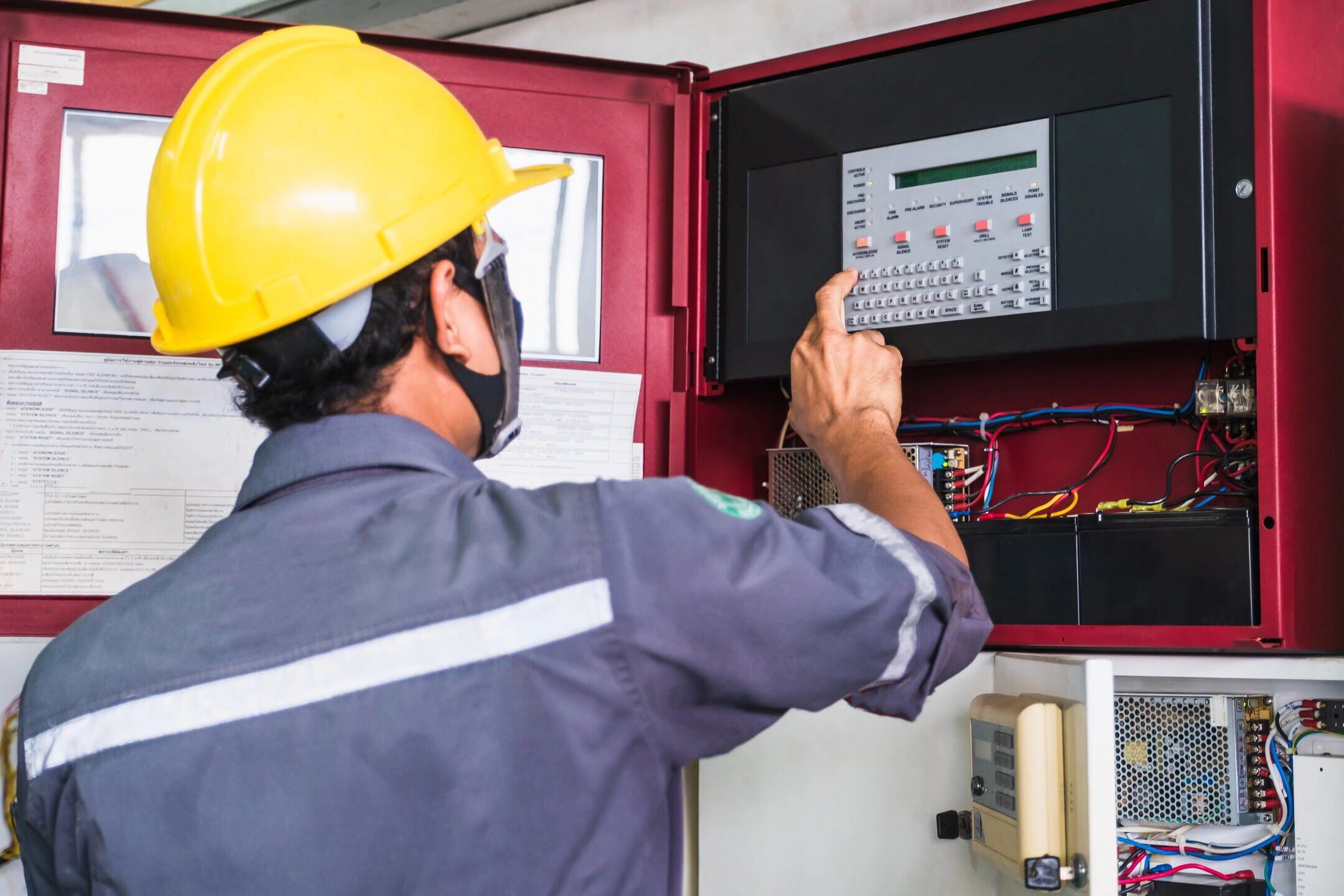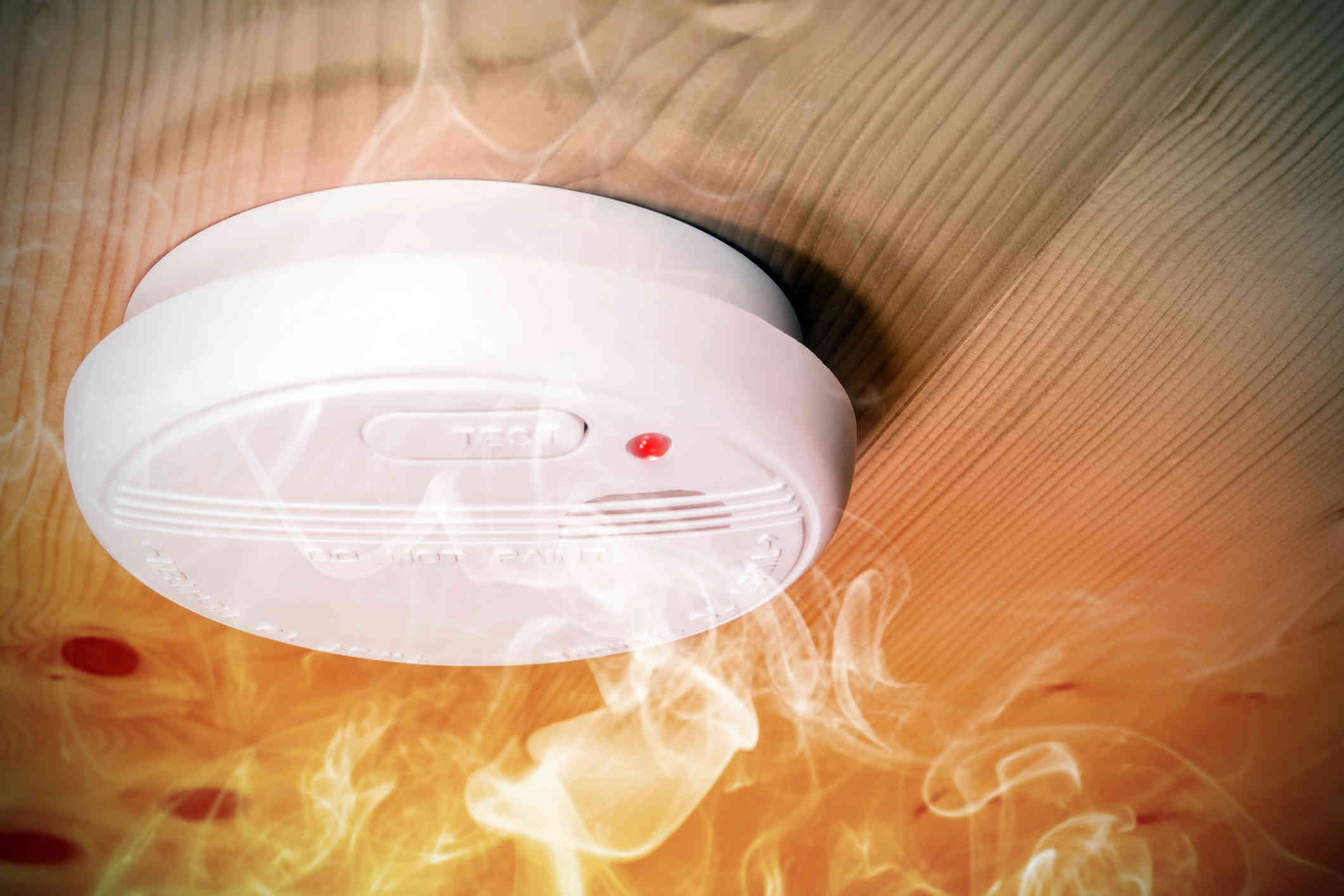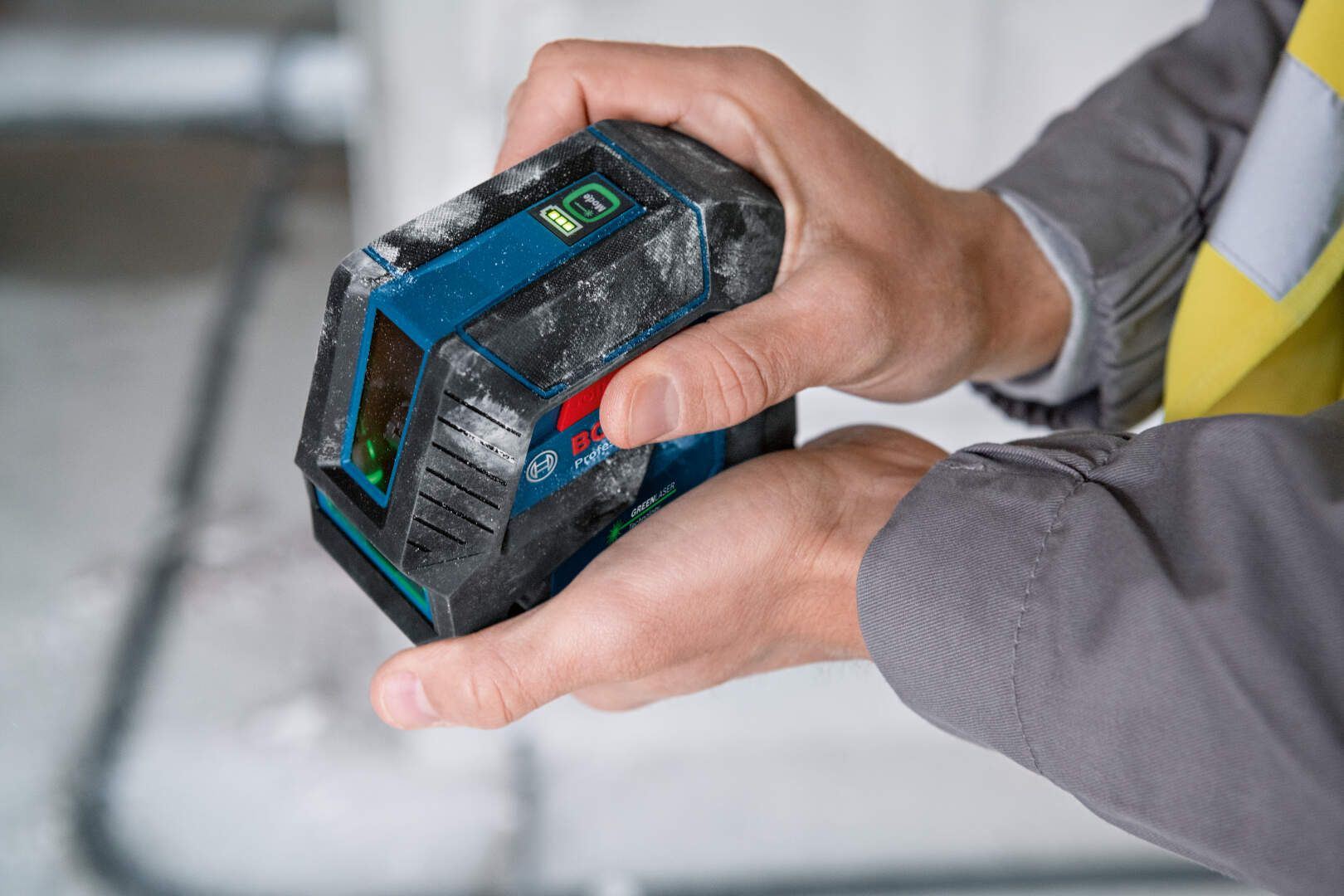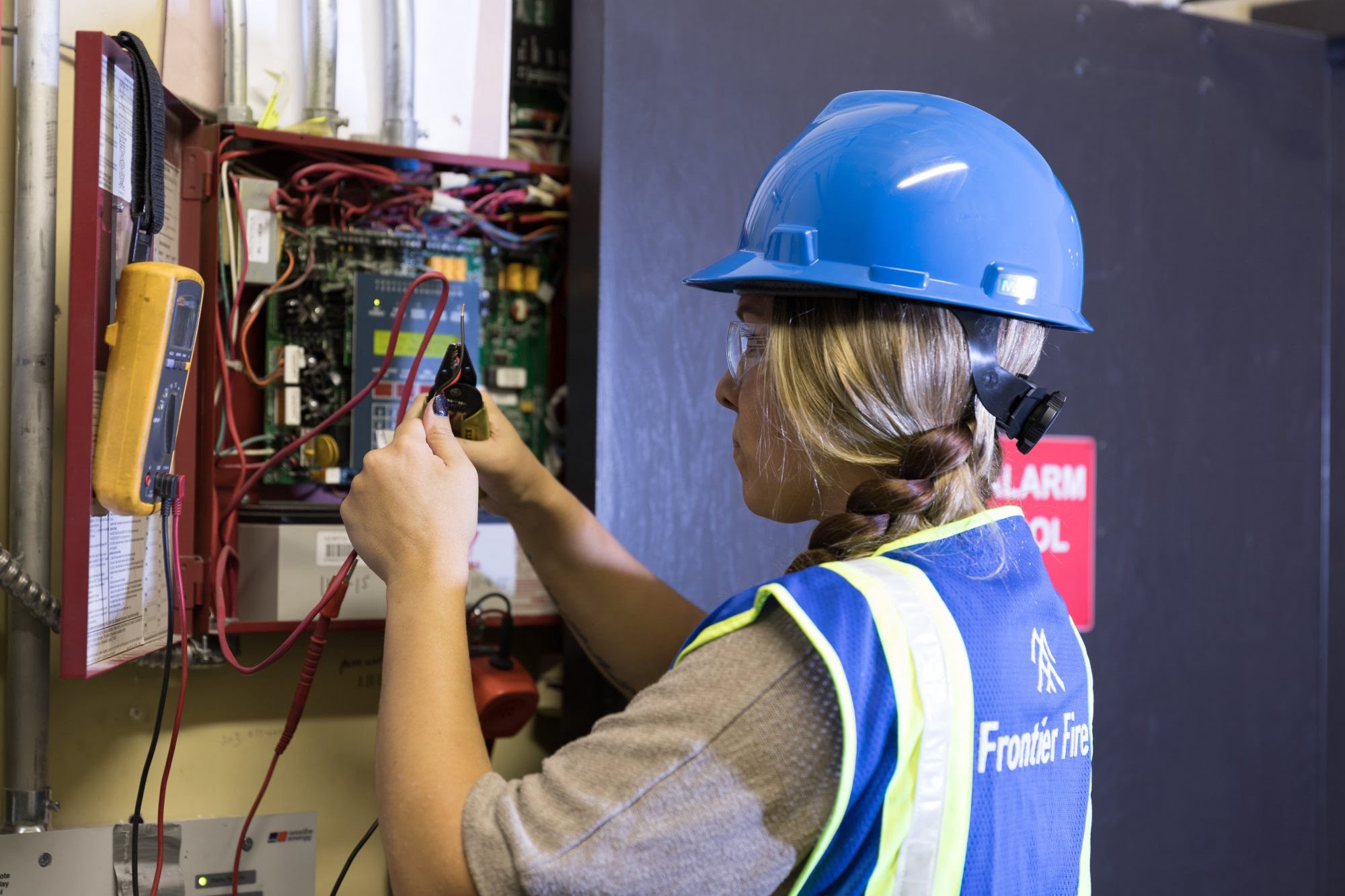Home>Home Security and Surveillance>How To Choose Fire Alarm Systems For Your Business Needs
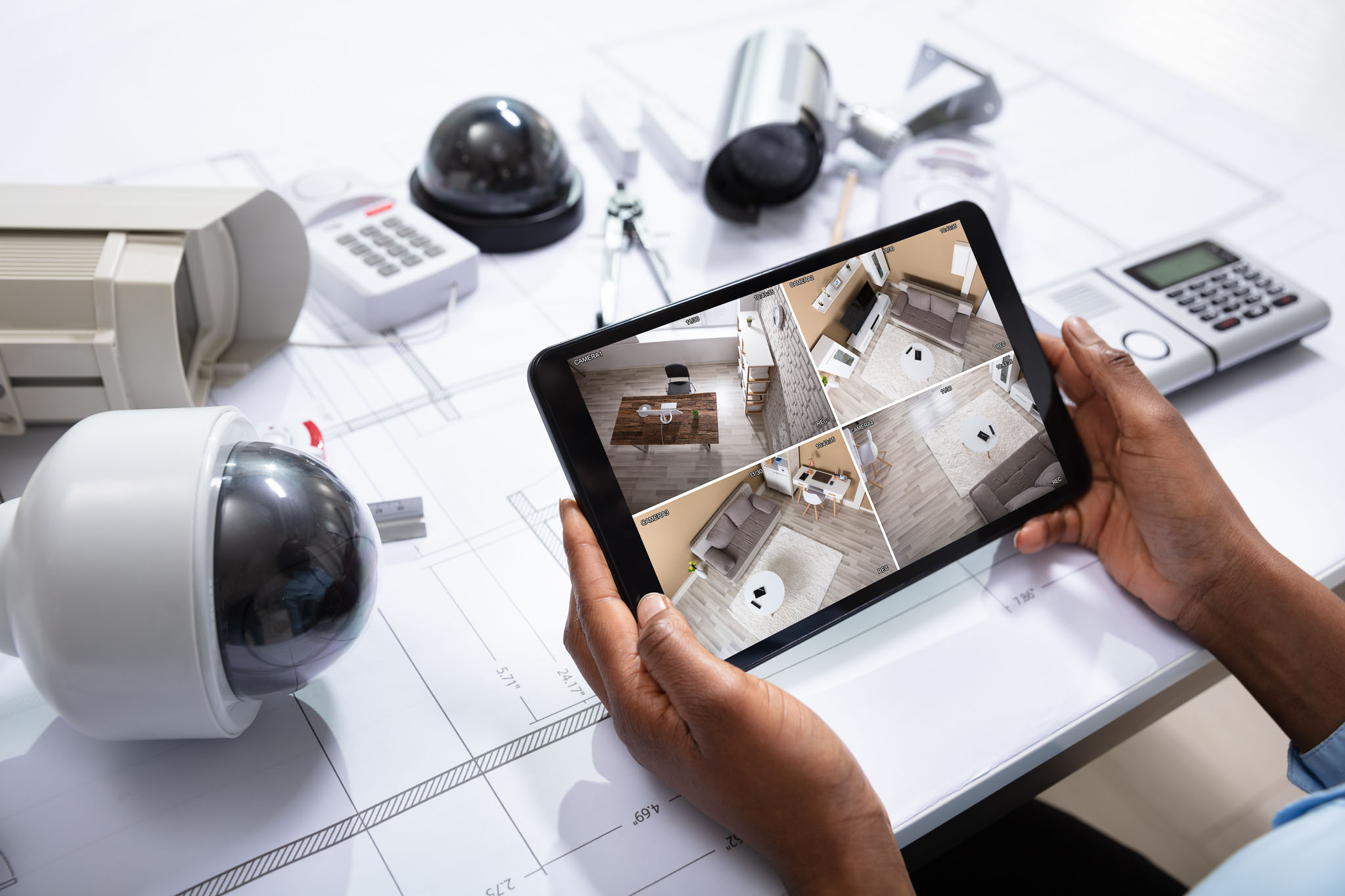

Home Security and Surveillance
How To Choose Fire Alarm Systems For Your Business Needs
Modified: March 6, 2024
Looking to enhance home security and surveillance? Learn how to choose the most effective fire alarm systems for your business needs to protect your property and ensure the safety of your employees.
(Many of the links in this article redirect to a specific reviewed product. Your purchase of these products through affiliate links helps to generate commission for Storables.com, at no extra cost. Learn more)
Introduction
When it comes to the safety and security of your business, few things are as crucial as having a reliable fire alarm system in place. Fire incidents can cause severe damage to your property, endanger the lives of your employees, and disrupt your business operations. Therefore, investing in the right fire alarm system is essential to protect your business and ensure the safety of everyone in your premises.
In this article, we will discuss the importance of fire alarm systems for your business, the different types available, considerations for choosing the right system, budgeting, regulations and codes to adhere to, choosing a reliable provider, installation and maintenance considerations, as well as testing and certification.
By understanding these crucial factors, you will be better equipped to make an informed decision and select a fire alarm system that meets your business needs.
Key Takeaways:
- Investing in a reliable fire alarm system is crucial for protecting your business, employees, and customers. Choose a reputable provider, prioritize proper installation and maintenance, and ensure compliance with regulations for optimal safety.
- Regular testing and certification of your fire alarm system are essential for ensuring its reliability and effectiveness. Conduct tests, maintain accurate records, and consider third-party certification to provide peace of mind and proactive fire safety measures.
Read more: Who Designs Fire Alarm Systems
Importance of Fire Alarm Systems
Fire alarm systems are designed to detect and alert occupants of a building in the event of a fire. They are crucial for the safety of your business, employees, and customers. Here are a few reasons why fire alarm systems are important:
1. Early Detection: Fire alarm systems are equipped with sensors that can detect smoke or heat at the earliest stages of a fire. This early detection allows for a quick response and minimizes the risk of the fire spreading uncontrollably.
2. Evacuation and Safety: A fire alarm system provides audible and visual alerts, allowing occupants to safely evacuate the building. This is particularly important in larger buildings where manual evacuation may not be feasible without proper notification.
3. Protection of Assets: Fires can cause significant damage to your business premises, equipment, inventory, and documents. A fire alarm system can help minimize losses by providing early detection, allowing for prompt extinguishment or contacting emergency services.
4. Compliance with Regulations: Installations of fire alarm systems are often required by local fire codes and regulations. Compliance with these regulations not only ensures the safety of your business but also avoids potential legal liabilities and penalties.
5. Reputation and Trust: Having a reliable fire alarm system in place demonstrates your commitment to the safety and well-being of your employees and customers. This builds trust and confidence, both internally and externally, as people feel secure knowing that measures are in place to protect them in the event of a fire.
6. Peace of Mind: Knowing that your business is equipped with a reliable fire alarm system provides peace of mind. It allows you to focus on your core business activities, knowing that the safety of your premises and personnel is being actively monitored.
Ensure that your fire alarm system is maintained and tested regularly to ensure optimal functionality. By doing so, you can rest assured that your business is well-prepared to handle any fire-related emergencies that may arise.
Types of Fire Alarm Systems
Fire alarm systems come in different types, each offering unique features and benefits. Understanding the different types can help you choose the one that best suits the needs of your business. Here are some common types of fire alarm systems:
1. Conventional Fire Alarm Systems: Conventional fire alarm systems divide the building into zones, with each zone having a separate circuit connected to a control panel. When a detector in a specific zone is triggered, the control panel indicates the zone where the fire is detected. Conventional systems are cost-effective and suitable for smaller buildings with basic fire detection requirements.
2. Addressable Fire Alarm Systems: Addressable fire alarm systems provide more detailed information about the location of a fire. Each device, such as smoke detectors or heat detectors, has a unique address that can be identified by the control panel. This allows for precise identification and faster response to the specific location of the fire. Addressable systems are ideal for larger buildings or complex facilities where pinpoint accuracy is necessary.
3. Wireless Fire Alarm Systems: Wireless fire alarm systems utilize wireless communication technology to connect the various components of the system. This eliminates the need for extensive cabling, making installation faster and more flexible. Wireless systems are suitable for buildings with historical or architectural restrictions that make wiring difficult.
4. Aspirating Smoke Detection Systems: Aspirating smoke detection systems use air-sampling technology to detect smoke particles in the air. They consist of a network of pipes and sampling points that continuously draw air samples to be analyzed for the presence of smoke. These systems are highly sensitive and can detect smoke at the earliest stages, making them suitable for environments where early warning is critical, such as data centers or clean rooms.
5. Beam Detection Systems: Beam detection systems use a transmitter and receiver to create an invisible beam of light across an area. When smoke disrupts the beam, the system is triggered. Beam detection systems are commonly used in large open spaces, such as warehouses or atriums.
6. Video Smoke Detection Systems: Video smoke detection systems use CCTV cameras to analyze video footage for the presence of smoke or flames. This technology can detect smoke patterns or changes in image characteristics caused by a fire. Video smoke detection systems are useful in settings where early detection is essential but traditional smoke detectors may not be suitable, such as areas with high ceilings or environments prone to false alarms.
It’s essential to assess the specific needs of your business and consult with a professional fire alarm system provider to determine which type of system is most suitable. Remember, the type of system you choose will depend on factors such as the size and layout of your building, the nature of your business operations, and any regulatory requirements in your area.
Considerations for Choosing Fire Alarm Systems
Choosing the right fire alarm system for your business is crucial to ensure the safety and protection of your premises and personnel. Here are some important considerations to keep in mind when selecting a fire alarm system:
1. Risk Assessment: Conduct a thorough risk assessment of your business premises to identify potential fire hazards and determine the level of fire protection required. Consider factors such as the building size, occupancy type, nature of operations, and any specific industry regulations that may apply.
2. Detection Requirements: Determine the appropriate type of detectors based on the specific needs of your business. Consider factors such as the presence of flammable materials, the potential for false alarms, and the need for early detection in critical areas.
3. Notification and Alarm Systems: Choose a fire alarm system that includes audible and visual alarms to ensure occupants are alerted promptly in the event of a fire. Consider the size and layout of your building to determine the number and placement of notification devices for effective coverage.
4. Integration with Other Systems: Consider whether you need your fire alarm system to integrate with other security or building management systems, such as access control or CCTV. Integration can provide additional benefits, such as centralized monitoring and streamlined emergency response.
5. Scalability and Future Expansion: Select a fire alarm system that can accommodate the future growth and expansion of your business. Consider whether the system can easily be expanded with additional detectors or devices as your business evolves.
6. Reliability and False Alarm Prevention: Look for a fire alarm system that has a proven track record of reliability and minimizes false alarms. False alarms can disrupt business operations and strain emergency services, so choose a system with advanced technology to reduce false alarms.
7. Compatibility with Fire Suppression Systems: If your business requires a fire suppression system, ensure that the fire alarm system is compatible with the suppression system to ensure seamless integration and coordinated response.
8. Compliance with Regulations: Ensure that the fire alarm system you choose meets all applicable local and national fire safety regulations and codes. Check for certifications from recognized testing organizations to ensure compliance and reliability.
9. Training and User-Friendliness: Consider the ease of use and training requirements for operating the fire alarm system. Choose a system that is user-friendly and offers training resources for your staff to effectively respond in case of an emergency.
10. Support and Maintenance: Verify the availability of technical support and maintenance services from the fire alarm system provider. Regular maintenance and testing are crucial to ensure the ongoing functionality and reliability of the system.
By considering these factors and consulting with a professional fire alarm system provider, you can select a system that aligns with your business needs and provides optimal fire safety and protection.
Budgeting for Fire Alarm Systems
When it comes to implementing a fire alarm system for your business, budgeting plays a crucial role in ensuring you make the right investment while maintaining financial stability. Here are some key considerations for budgeting for fire alarm systems:
1. Determine the Scope: Begin by assessing the size and complexity of your business premises. Consider factors such as the number of zones, the number of devices required, and any specific features or integration needs. This will give you a clear understanding of the scope of the project and help in estimating the budget.
2. Research Costs: Research the cost of different fire alarm system types and brands to get an idea of the price range. Keep in mind that costs can vary based on factors such as the type of detectors, notification devices, control panels, and any additional features or customization required.
3. Seek Multiple Quotes: Obtain quotes from multiple fire alarm system providers to compare costs and services. Request detailed proposals that outline the equipment, installation, and any ongoing maintenance or monitoring fees. This will enable you to make an informed decision and choose a provider that offers the best value for your budget.
4. Consider Long-Term Costs: While it may be tempting to prioritize upfront costs, it’s important to consider the long-term expenses associated with the fire alarm system. This includes maintenance, testing, and potential upgrades or expansions in the future. Factor these costs into your budget to ensure you can sustain the system effectively over time.
5. Explore Financing Options: If the initial costs of a fire alarm system exceed your budget capacity, explore financing options such as leases or equipment financing. This allows you to spread the costs over a period of time and alleviate the strain on your immediate finances. Consider the interest rates, terms, and any associated fees when evaluating financing options.
6. Prioritize Essential Features: Consider your business’s specific needs and prioritize the essential features required for the fire alarm system. Focus on functionality and compliance with regulations rather than unnecessary bells and whistles that may inflate the costs. Remember that the reliability and effectiveness of the system should be the top priority.
7. Consult with Professionals: Engage with qualified fire alarm system professionals to guide you through the budgeting process. They can provide valuable insights into cost-effective solutions, recommend suitable options, and help in estimating the complete budget including installation and ongoing maintenance expenses.
8. Plan for Future Upgrades: Anticipate the possibility of system upgrades or expansions in the future. While it may not be feasible to include them in your current budget, having a plan in place can help you make informed decisions when the time comes and ensure the scalability of your fire alarm system.
Remember, while budgeting is important, it’s essential to prioritize the safety and protection of your business and personnel. Invest in a reliable and compliant fire alarm system that meets your needs, even if it requires allocating additional funds to safeguard your assets and ensure the well-being of everyone in your premises.
When choosing a fire alarm system for your business, consider the size and layout of your building, the type of business you have, and any specific fire safety regulations that apply to your industry.
Read more: When Are Fire Alarm Systems Required
Regulations and Codes
Installing a fire alarm system for your business requires compliance with various regulations and codes to ensure the safety and protection of your premises and occupants. Here are some key regulations and codes you need to be aware of:
1. National Fire Protection Association (NFPA): The NFPA provides guidelines and standards for fire protection and prevention. Their widely recognized standard, NFPA 72, is the National Fire Alarm and Signaling Code, which covers the design, installation, maintenance, and testing of fire alarm systems.
2. Local Fire Codes: Each jurisdiction may have its own set of fire codes and regulations that businesses must adhere to. These codes specify requirements for fire alarm systems based on building occupancy, size, and use. It is important to consult with the local fire department or fire marshal to ensure compliance with these codes.
3. Occupancy Classification: The building’s occupancy type will determine specific regulations for fire alarm systems. Different types of occupancies, such as commercial buildings, industrial facilities, healthcare facilities, or educational institutions, may have unique requirements. Familiarize yourself with the specific regulations for your building’s occupancy type.
4. Detector Placement: Regulations and codes outline guidelines for the placement of fire detectors within a building. These guidelines consider factors such as the height of installation, spacing between detectors, and specific requirements for areas with special hazards. Adhering to these guidelines ensures effective detection throughout the premises.
5. Audible and Visual Notification: Regulations define the minimum sound level and visual brightness required for fire alarm system notification devices. These requirements ensure that occupants can clearly hear and see the alarms, even in noisy or visually impaired conditions.
6. Emergency Communication Systems: Some regulations may require the integration of emergency communication systems (ECS) with fire alarm systems. ECS provides communication capabilities during emergencies, ensuring that occupants receive clear instructions and information during an evacuation. These systems may include speakers, voice evacuation systems, or other means of communication.
7. Record Keeping and Reporting: Regulations may require regular inspection, testing, and maintenance of fire alarm systems. It is important to maintain accurate records and documentation of all inspections, tests, and repairs performed. These records serve as proof of compliance and can be requested during inspections or audits.
8. Ongoing Compliance: Building codes and regulations evolve over time. It is important to stay updated on changes and amendments to ensure ongoing compliance with the latest requirements. Regularly consult with fire safety professionals, attend training sessions, and stay informed about any new codes or regulations that may impact your fire alarm system.
Complying with regulations and codes is not only essential for the safety of your business and occupants but also helps avoid potential legal liabilities and penalties associated with non-compliance. Work closely with fire alarm system professionals to ensure that your system meets all necessary regulations and codes to provide the highest level of fire safety and protection for your premises.
Choosing a Reliable Fire Alarm System Provider
When it comes to selecting a fire alarm system provider for your business, it is crucial to choose a reliable and reputable company that can meet your specific needs. Here are some key factors to consider when choosing a fire alarm system provider:
1. Experience and Expertise: Look for a provider with extensive experience in designing, installing, and maintaining fire alarm systems. An experienced provider will have deep knowledge of fire safety regulations, codes, and industry best practices. They can offer valuable insights and guidance to ensure your fire alarm system is designed and implemented correctly.
2. Licensing and Certifications: Verify that the fire alarm system provider holds the necessary licenses and certifications required by your local jurisdiction. This ensures that they meet specific competency and quality standards in delivering fire protection services. Check for certifications from industry bodies such as the National Institute for Certification in Engineering Technologies (NICET) or manufacturer-specific certifications.
3. Range of Services: Consider the full range of services offered by the provider. They should be able to handle all aspects of the fire alarm system lifecycle, including design, installation, monitoring, maintenance, and repairs. Having a single provider for all these services ensures seamless coordination and accountability throughout the life of the system.
4. Quality of Products: Evaluate the quality and reliability of the fire alarm system products used by the provider. Look for reputable brands that are known for their performance and durability. A reliable provider will use high-quality equipment that meets industry standards and can withstand the demands of your business environment.
5. Customization and Scalability: Choose a provider who can customize the fire alarm system to meet your unique business needs. They should be able to assess your specific requirements and design a system that integrates seamlessly with your existing infrastructure. Additionally, consider the provider’s ability to support the scalability of the system as your business grows or changes.
6. Customer Support: Prompt and reliable customer support is essential when it comes to fire alarm systems. Ensure that the provider offers responsive support and has a dedicated team available for emergency assistance or technical issues. Check reviews and testimonials from other clients to gauge the provider’s level of customer satisfaction.
7. Reputation and References: Research the reputation of the fire alarm system provider in the industry. Look for reviews or testimonials from other businesses they have served. Additionally, ask the provider for references and contact those clients to get firsthand feedback on their experience with the company.
8. Compliance with Regulations: Verify that the provider adheres to all relevant fire safety regulations and codes. They should have a thorough understanding of the requirements specific to your area and ensure that the system they install is compliant. Non-compliance can result in penalties and compromise the safety of your business.
9. Competitive Pricing: While cost should not be the sole determining factor, it is important to consider the pricing options offered by the provider. Compare quotes from multiple providers to ensure you are getting a fair price for the quality of products and services offered.
10. Maintenance and Service Contracts: Inquire about the availability of maintenance and service contracts. Regular maintenance and testing are crucial to ensure the ongoing functionality and reliability of the fire alarm system. Look for a provider that offers comprehensive maintenance plans to keep your system in optimal condition.
Investing in a reliable fire alarm system provider is a critical step in protecting your business from the risks of fire. By carefully considering these factors and conducting thorough research, you can choose a provider that meets your specific needs and ensures the safety and security of your premises.
Installation and Maintenance Considerations
Proper installation and ongoing maintenance are vital for the effective operation of a fire alarm system. Here are some key considerations to keep in mind regarding the installation and maintenance of your fire alarm system:
1. Professional Installation: Ensure that the fire alarm system is installed by trained and qualified professionals. Improper installation can lead to malfunctioning or ineffective operation of the system. A professional installer will follow industry best practices and ensure that all components are properly connected and configured.
2. System Integration: If you have other security or building management systems in place, such as access control or CCTV, ensure that the fire alarm system is integrated seamlessly with these systems. Proper integration allows for coordinated emergency response and centralized monitoring.
3. Compliance with Regulations: Verify that the fire alarm system installation follows all local regulations and codes. The installer should have a thorough understanding of the specific requirements for your building, occupancy type, and industry. Compliance with regulations is crucial for the safety of your business and to avoid potential legal liabilities.
4. Documentation and Record Keeping: Maintain accurate documentation and records of the installation process. This includes circuit diagrams, zoning plans, programming details, and manuals provided by the installer. These records serve as references for future maintenance, upgrades, or inspections.
5. User Training: Ensure that your staff receives proper training on the operation, functionality, and basic troubleshooting of the fire alarm system. This empowers them to respond effectively in case of emergencies and minimizes the risk of false alarms caused by user error.
6. Routine Testing and Inspections: Schedule regular testing and inspections of your fire alarm system to ensure its proper functionality. This includes testing smoke detectors, manual call points, notification devices, and control panel functions. Inspections can be conducted by qualified technicians to thoroughly assess the system and identify any potential issues.
7. Maintenance Agreements: Consider signing a maintenance agreement with a reputable provider. Regular maintenance visits by trained professionals can help identify and fix issues early on, ensuring that the system remains operational at all times. Maintenance agreements often include periodic inspection, cleaning, testing, and necessary repairs to keep the system in optimal condition.
8. System Upgrades and Expansion: Stay vigilant about system upgrades and expansions as technology evolves and your business needs change. Consult with your fire alarm system provider to assess the need for additional devices, features, or updates to ensure the system meets current regulations and remains effective in protecting your premises.
9. Emergency Response Plan: Develop and regularly review an emergency response plan in coordination with your fire alarm system. This includes identifying evacuation routes, designating assembly points, and establishing communication protocols during emergencies. Ensure that all staff members are familiar with the plan and conduct regular drills to reinforce preparedness.
10. System Monitoring: Consider implementing a system monitoring service that will alert you and the appropriate authorities in case of a fire alarm activation. This ensures that emergency services are dispatched promptly, even when the premises are unoccupied.
Proper installation and ongoing maintenance are essential to ensure the reliability and functionality of your fire alarm system. By following these considerations, you can ensure the continued safety of your business, employees, and property.
Testing and Certification
Regular testing and certification are integral to maintaining the reliability and effectiveness of your fire alarm system. Here are some important considerations regarding testing and certification:
1. Testing Frequency: Schedule regular testing of your fire alarm system to ensure its proper functionality. The frequency of testing may vary based on local regulations, but it is typically recommended to conduct full system tests at least once a year. Regular testing helps identify any issues or malfunctions that may hinder the system’s performance during an emergency.
2. Testing Procedures: Follow the testing procedures specified by the manufacturer and local fire codes. This typically involves activating each component of the fire alarm system, including smoke detectors, manual call points, notification devices, and control panels. Document the results of each test, noting any discrepancies or areas that require attention.
3. False Alarm Prevention: During testing, be mindful of false alarms and take precautions to prevent unnecessary disruption. Consider temporarily disabling certain notification devices or coordinating with local authorities to prevent any unnecessary emergency response. Ensure that all staff members are aware of the testing schedule to minimize confusion and panic.
4. Inspection and Maintenance Reports: Keep a record of all inspections and maintenance performed on your fire alarm system. This includes routine maintenance visits, repairs, and any upgrades or modifications. These reports serve as proof of compliance and can be requested during inspections or audits.
5. Third-Party Certification: Consider engaging a third-party certification service to validate the performance and compliance of your fire alarm system. These independent organizations specialize in evaluating fire protection systems and can provide a thorough assessment of your system’s functionality and adherence to relevant standards and codes.
6. Compliance with Codes and Regulations: Ensure that your fire alarm system meets all applicable codes and regulations. Certification agencies may certify your system based on specific industry standards such as the National Fire Protection Association (NFPA) 72. Compliance with these codes and regulations ensures that your system is designed and implemented correctly, providing the necessary level of protection for your premises.
7. Verification of Alarm Signals: As part of the testing process, verify that alarm signals are properly transmitted to the designated monitoring center or emergency response agencies. Test the communication channels to ensure that there are no delays or disruptions in transmitting alarm signals in case of an emergency.
8. Ongoing Training: Provide ongoing training to your staff regarding the testing and operation of the fire alarm system. This will ensure that they are familiar with the testing procedures and can respond appropriately in case of an alarm. Regular training sessions also educate staff on the importance of the system and reinforce emergency preparedness.
9. Stay Up to Date: Stay informed about any updates or changes to relevant codes and regulations. Regularly review the guidelines provided by certification agencies and local fire authorities to ensure ongoing compliance and maintain the highest level of fire safety for your business.
By conducting regular testing and obtaining proper certification, you can ensure that your fire alarm system is in optimal condition and capable of detecting and alerting occupants in the event of a fire. Testing and certification provide peace of mind, knowing that your system is reliable and compliant with industry standards and regulations.
Read more: How To Get A Fire Alarm Systems Training
Conclusion
Investing in a reliable fire alarm system is essential for the safety and protection of your business, employees, and customers. By understanding the importance of fire alarm systems, the different types available, and the considerations for choosing the right system, you can make an informed decision that aligns with your business needs.
Remember, when choosing a fire alarm system provider, prioritize experience, expertise, and adherence to regulations. A reputable provider will ensure proper installation, offer quality products, provide ongoing maintenance and support, and ensure compliance with local codes and regulations.
Proper installation and maintenance play a crucial role in the effectiveness of a fire alarm system. Ensure professional installation, system integration, and ongoing compliance with regulations. Regular testing, inspections, and maintenance are necessary to keep the system in optimal condition and prevent malfunctions or false alarms.
Testing and certification provide additional assurance that your fire alarm system is reliable and compliant. Conduct regular tests, document the results, and consider third-party certification for an independent assessment of your system’s performance and adherence to standards.
In conclusion, prioritize the safety and protection of your business by investing in a reliable fire alarm system and partnering with a reputable provider. Regular maintenance, testing, and certification will ensure the ongoing effectiveness of your system and provide peace of mind knowing that you have taken proactive steps to mitigate the risks of fire.
Remember, fire safety should be a top priority for every business, and a well-designed and properly maintained fire alarm system is an essential component of a comprehensive safety plan.
Frequently Asked Questions about How To Choose Fire Alarm Systems For Your Business Needs
Was this page helpful?
At Storables.com, we guarantee accurate and reliable information. Our content, validated by Expert Board Contributors, is crafted following stringent Editorial Policies. We're committed to providing you with well-researched, expert-backed insights for all your informational needs.
